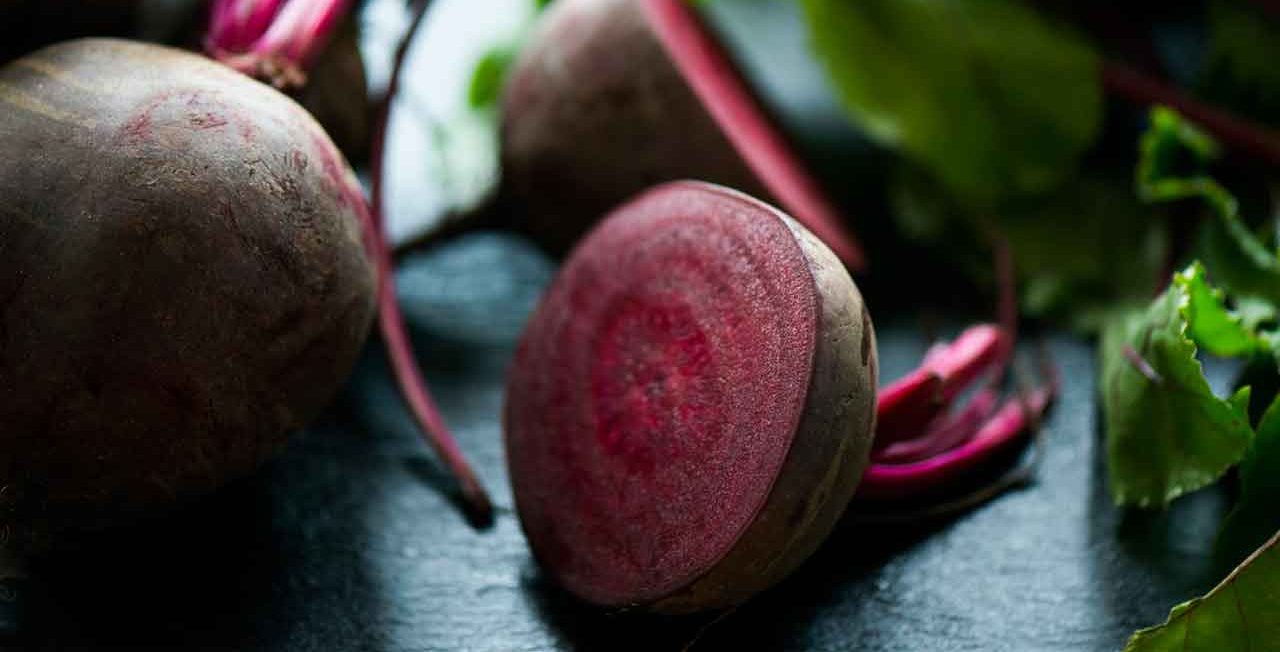How to Cook Beets

Simple tips about how to cook beets open new possibilities to add healthful, home-cooked food to your diet. We also clue you in on the health benefits of beets.
Beets are one of those foods that people seem to love or hate. For most of my life, I fell into the latter category.
One recent summer, though, I learned how to cook beets. A gardener friend of mine gave me some fresh beets, but I considered them tentatively for a few days each time I opened my refrigerator.
Feeling bad about the possibility of wasting this food my friend had worked hard to grow, I eventually decided to roast them. The result was a mind-blowing lesson in why you should cook your own food, along with learning about the health benefits of beets.
Fresh cooked, still-warm-out-of-the-oven beets are delicious, and, as it turns out, really nutritious.
YOU MIGHT ALSO LIKE: Roasted Cauliflower and Goat Cheese Gratin
Health benefits of beets
Fresh roasted beets are nothing like the canned variety. They have a firm texture and rich flavor, are sweet, and come in a variety of colors — red, golden, and white. They’re also a healthy addition to whatever you put them in. Red beets, in particular, have received increasing interest for their potential as a disease preventing “functional food.”
Beets are rich in phytochemical compounds, including:
- Ascorbic acid
- Carotenoids
- Phenolic acids
- Flavonoids
Beets are one of the few vegetables that contain highly bioactive pigments known as betalains that are either red-violet or yellow-orange. Betalains have high antioxidant and anti-inflammatory capabilities, which has generated interest in their possible effectiveness to treat diseases linked to oxidative stress and chronic inflammation, such as liver disease, arthritis, and cancer.
Beets have garnered additional interest because of their dietary nitrate content. Dietary nitrate has beneficial vascular effects, including reducing blood pressure.
How to cook beets
Choose a bunch of fresh beets at your local grocery store. They usually come in bunches of three to four. Try to find ones that are all close to the same size, so their cooking time is similar. As with anything that grows in the ground, organic beets are best if you can find them.
Preheat your oven to 400 degrees.
Fresh beets usually come with the leaves still attached. Cut them off where they attach to the beet and set them aside. Beet greens are edible and a treasure trove of nutrition on their own. You can often purchase them separately, as they’re considered a leafy green similar to spinach, chard, or mustard greens. Prepare them as you would any other dark green leafy vegetable.
Trim the roots and scrub the beets well, removing any dirt or mud that may still be stuck to the skin.
Dry the beets and place them in a baking dish. Drizzle with some olive oil, rubbingh it in so the beets are thoroughly coated. Sprinkle with coarse salt and place them in the oven for 60 to 75 minutes, depending on the size of the beets. When they’re done, you should be able to pierce the beets with a fork, but they shouldn’t be mushy.
If you’ve washed the beets well, you can eat them right out of the oven without peeling. They’re not that pretty, but the taste will reward you.
After the beets are cool enough to handle, gently peel the thin skin to reveal the brilliant red or golden flesh. Add the beets to anything. Shred or dice them into a salad. Slice them and serve as a colorful side dish. Use them in place of chickpeas and make a brilliant beet hummus.
Keep in mind that, when you eat beets, your body does not completely absorb the pigments. They will appear at the end of your digestive process. Don’t be alarmed if your urine appears pink or if you see red in your stool for a day or two after you eat beets.
Nutritionists say you should “eat the rainbow.” Incorporating beets and other brightly colored fruits and vegetables into your menu will bring you one step closer to optimum health achieved through a colorful and diverse diet.
Dietary information
One 2-inch diameter beet:
- Has just 35 calories
- Contains no fat or cholesterol
- Has 8 g of total carbohydrate (6 g from sugars)
- Is high in potassium (8 percent DV*) and vitamin C (7 percent DV)
*Percent daily value (DV) based on a 2,000-calorie diet. Your values may change depending on your calorie needs.
Updated:
October 18, 2023
Reviewed By:
Janet O’Dell, RN